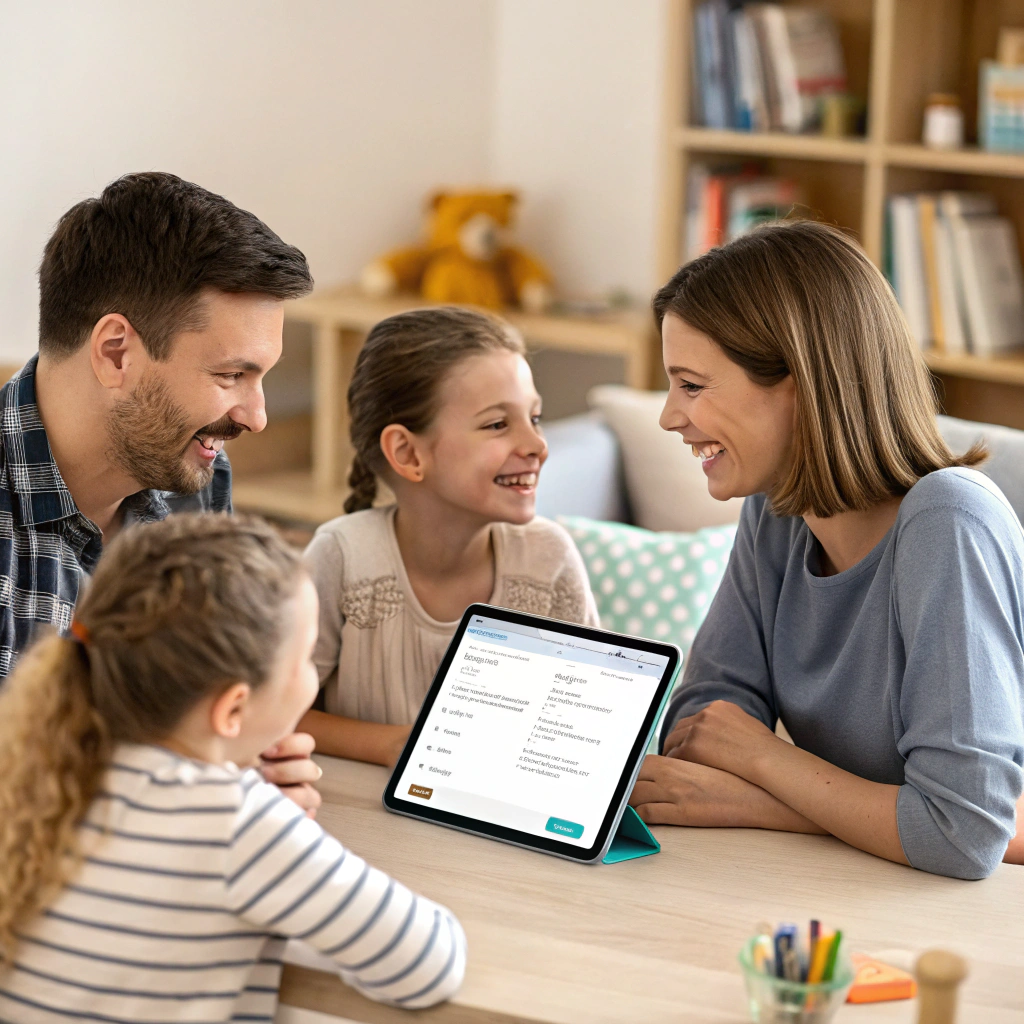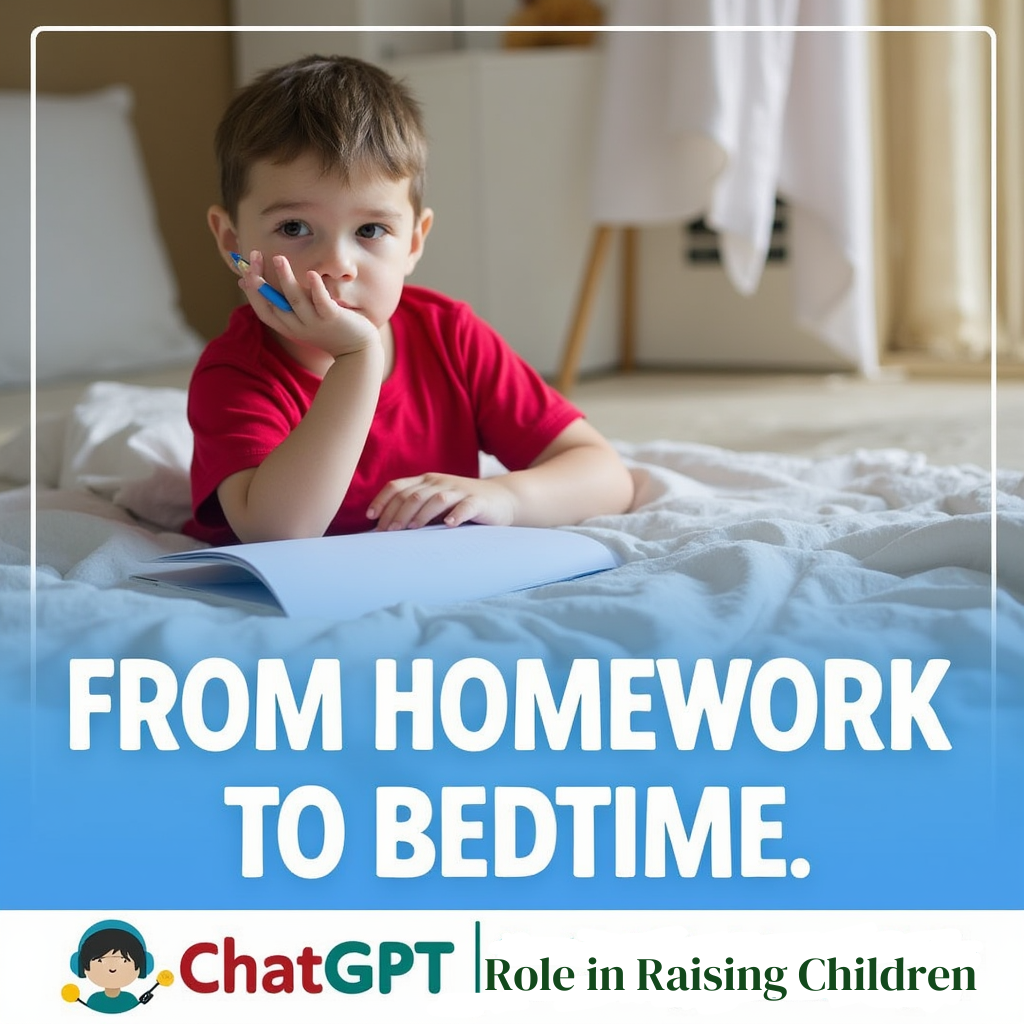In today’s digital age, technology plays a significant role in shaping how we raise our children. One such tool making waves is ChatGPT, an advanced AI designed to assist in a variety of ways. From helping with homework to providing guidance during bedtime routines, ChatGPT offers a unique, interactive approach to parenting. This article explores how ChatGPT can be a valuable ally in the journey of raising children, enhancing learning, fostering creativity, and supporting family life.
1. Helping with Homework: How ChatGPT in Parenting Transforms Learning Time?
Transforming Homework Time Into a Collaborative Experience
One of the primary challenges parents face is helping their children with homework. Often, the work becomes a source of stress for both kids and parents, especially when they struggle to understand complex subjects. This is where ChatGPT comes in. Acting as a virtual tutor, ChatGPT can provide step-by-step explanations of tricky concepts in subjects like math, science, history, and language arts.
For example, if a child is struggling with a math problem, they can ask ChatGPT to break down the process into simpler steps. The AI can offer different approaches or rephrase a question to make it easier to grasp. By offering instant explanations, ChatGPT can reduce frustration and foster a positive attitude toward learning. Additionally, it can provide instant feedback on assignments, helping children learn from their mistakes without the delay of waiting for teacher comments.
Personalized Learning: A Tailored Approach to Each Child’s Needs
Every child learns differently, and ChatGPT can adapt its responses based on individual learning styles. For a visual learner, ChatGPT might explain a concept using descriptive examples or diagrams. For an auditory learner, it may provide audio-based explanations or offer suggestions for video tutorials. This adaptability makes ChatGPT a versatile tool for students with varying learning preferences, ensuring that each child gets the type of support they need to succeed academically.
2. Encouraging Creativity and Problem Solving: ChatGPT in Parenting Sparks Imagination

Fostering Creative Thinking Through Interactive Conversations
While ChatGPT is known for its academic support, it also excels in promoting creativity. Whether children are interested in storytelling, designing art projects, or brainstorming new ideas, ChatGPT can offer endless possibilities. Through interactive conversations, children can develop and refine their ideas, helping them think outside the box.
For example, a child might ask ChatGPT to help them come up with a unique storyline for a short story. ChatGPT can provide suggestions for plot twists, character development, and settings, encouraging the child to expand their imagination. Additionally, ChatGPT can guide children through the creative process of making art, helping them explore various techniques and media.
Problem-Solving Skills Through Simulated Scenarios
ChatGPT can also nurture problem-solving skills by guiding children through hypothetical situations. For instance, children might ask ChatGPT how to build a makeshift structure out of household items or how to solve a puzzle. The AI can offer strategies and prompt the child to think critically about possible solutions, helping to develop important cognitive abilities.
Moreover, ChatGPT can act as a “safe space” for children to experiment with ideas without fear of failure. By encouraging experimentation and iterative thinking, ChatGPT helps children develop resilience, confidence, and perseverance—qualities that will benefit them throughout their lives.
3. Supporting Bedtime Routines: Emotional Wellness and Relaxation with AI
Creating a Calming Environment for a Restful Night’s Sleep
Bedtime can be challenging for both children and parents, especially when the day’s excitement makes it hard to wind down. ChatGPT can help create a calming environment by offering gentle conversations and calming activities. For instance, children can listen to bedtime stories read by ChatGPT, which can be customized to their preferences, whether they want a fairytale, an adventure, or a peaceful story about nature.
ChatGPT can also guide children through relaxation techniques, such as deep breathing exercises or visualizations, to help them feel relaxed and secure. By offering a soothing, consistent presence, ChatGPT can help children transition from their active day to a peaceful night’s sleep.
Emotional Support and Reflection: Talking Through the Day’s Ups and Downs
Beyond just calming techniques, ChatGPT can also help children express their feelings, especially if they are experiencing anxiety, fear, or frustration. Children can share their thoughts with ChatGPT, which responds in a supportive, non-judgmental manner. This interaction encourages emotional intelligence and self-awareness by allowing children to process their feelings before bedtime.
If a child had a challenging day at school or with friends, ChatGPT can help them reflect on the situation and provide constructive suggestions. This emotional support can help children feel understood and valued, making bedtime a time for emotional growth and self-reflection.
4. Enhancing Family Interaction: ChatGPT in Parenting as a Communication Bridge

Facilitating Family Conversations and Activities
ChatGPT can also enhance family dynamics by acting as a bridge for communication. It can help parents engage in more meaningful conversations with their children by suggesting topics or questions that promote discussion. Whether it’s talking about a book the child is reading or exploring ideas for family activities, ChatGPT can introduce fresh perspectives that spark curiosity.
In addition, ChatGPT can assist in planning family-friendly activities, such as arts and crafts, science experiments, or outdoor adventures. By offering suggestions and helping organize plans, ChatGPT encourages families to spend quality time together, reinforcing bonds and creating shared experiences.
Supporting Parent-Child Bonding Through Shared Learning
Parents can also use ChatGPT as a learning tool alongside their children. By exploring new topics or learning new skills together, families can strengthen their relationships while also fostering a shared sense of intellectual curiosity. Whether it’s solving a tricky math problem, learning a new language, or discussing global issues, ChatGPT helps create a learning environment that promotes cooperation and teamwork within the family.
Conclusion:
The integration of AI into everyday parenting is still in its early stages, but tools like ChatGPT are already showing great promise in supporting both children and parents. From assisting with homework and sparking creativity to providing emotional support and fostering better family communication, ChatGPT offers a comprehensive approach to modern parenting. While it is no substitute for human connection and guidance, it can certainly serve as a helpful tool in enhancing children’s education, emotional well-being, and overall development. By embracing the potential of AI, parents can provide their children with a well-rounded and enriching upbringing in the digital age.

